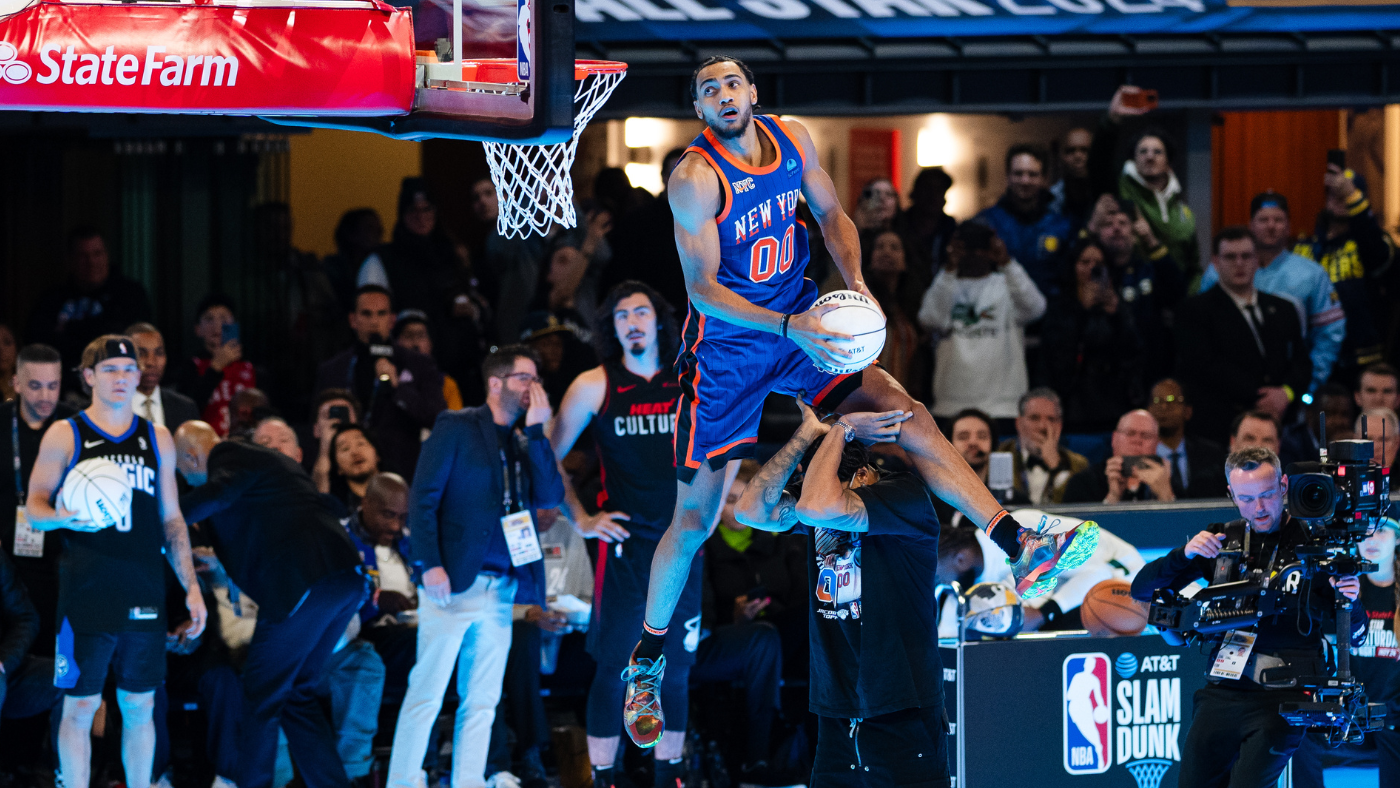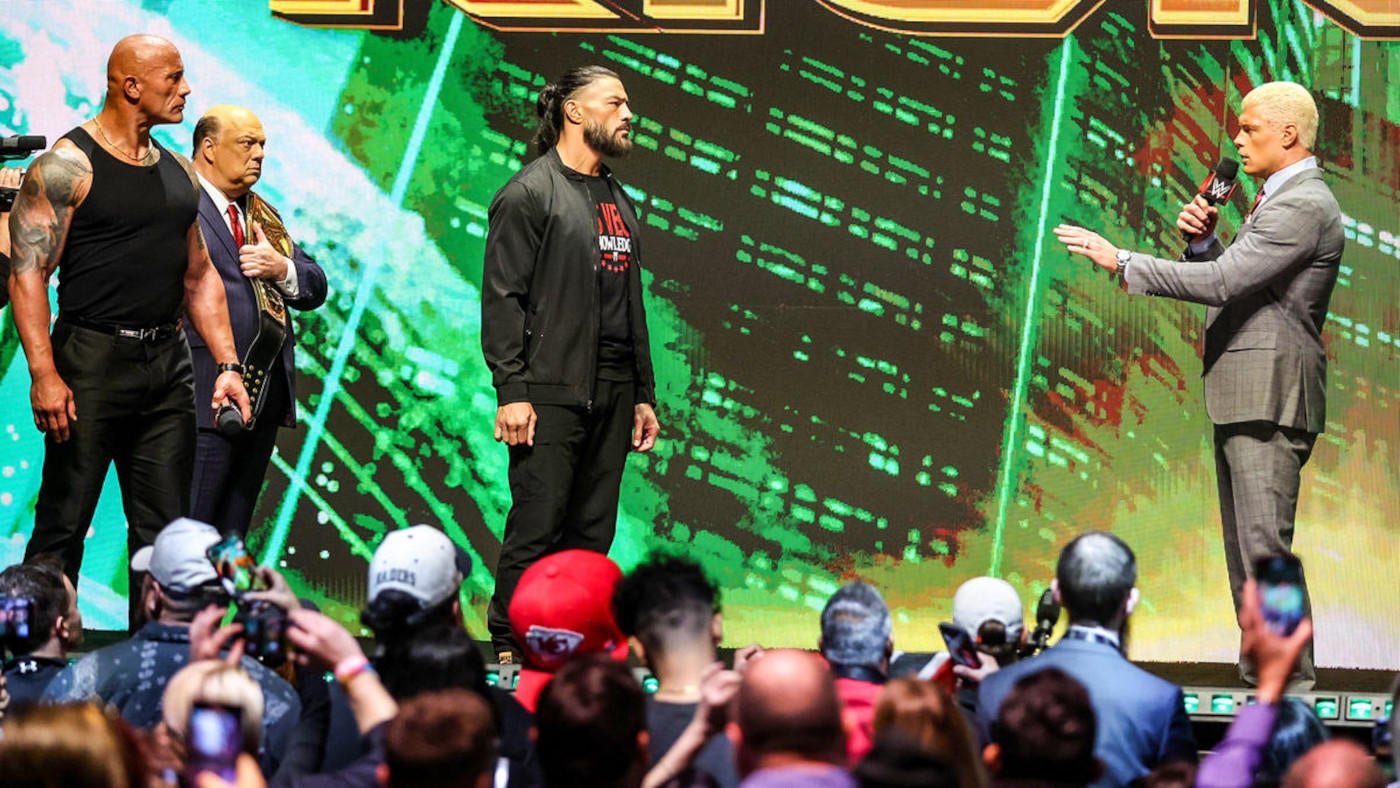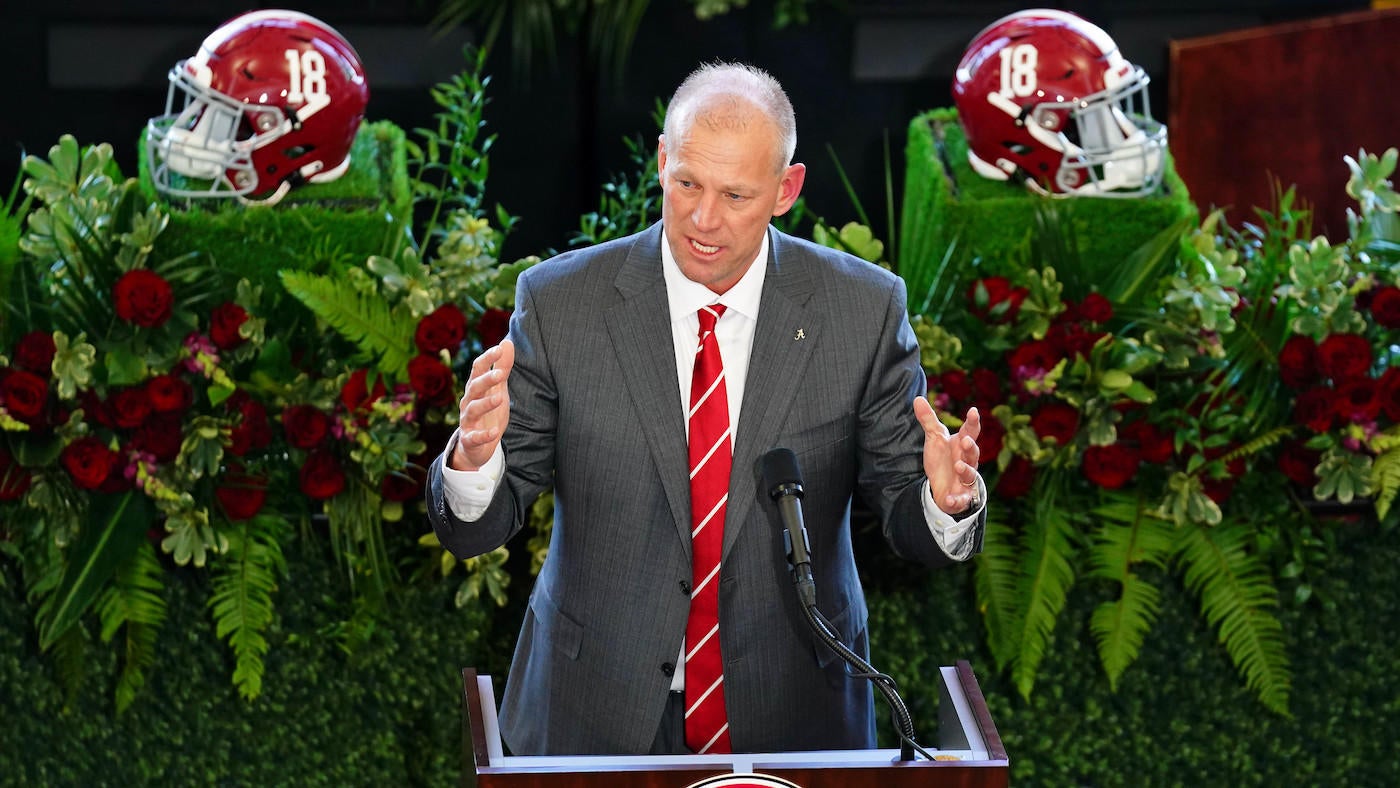Jacob Toppin’s planned Dunk Contest finale showcases the event’s biggest structural flaw
Written by CBS SPORTS ALL RIGHTS RESERVED on February 27, 2024


The 2024 NBA Slam Dunk Contest wasn’t exactly well-received, and critics had no shortage of ammunition to use against it. Lack of star power, mostly unoriginal dunks and questionable judging all contributed to what was ultimately a disappointing Saturday night headliner. On Monday, we got a glimpse of what might have been had things gone slightly differently.
Chuck Millan, the NBA’s official Dunk Contest coach, shared a video of one of the dunks Jacob Toppin initially planned to use. The dunk itself was incredible: Toppin does a 360-degree spin in the air while throwing himself a behind-the-back pass before slamming it down.
Take a look:
In an event that has become incredibly repetitive in recent years, the dunk would have stood out as a true original. So why didn’t we see this dunk on the broadcast? Because Toppin was saving it for the final round, which he did not make.
Now, it would be easy to place the blame for that squarely on the judges. They were seemingly the only people watching the event that believed that Jaylen Brown’s first two dunks were better than Toppin’s. In a just world, we would’ve seen Toppin’s showstopper in the finals. But Toppin shouldn’t have been in a position where he felt he needed to save that dunk in the first place.
The format of the Dunk Contest is fundamentally anticlimactic. The most entertaining way to plan a dunk contest would be to structure it in such a way that the best dunks are saved for last. Sometimes it works out this way. More often than not, voters are put in the difficult position of having to decide whether or not they can afford to wait that long. Since two of the four dunkers are eliminated after only two dunks, dunkers are therefore incentivized to use their best dunks early to ensure passage into the final round.
Toppin didn’t do that, and he was eliminated early. It would be easy to say that he should’ve emptied the bucket earlier, but then he might not have had anything left for the final round. Imagine if Blake Griffin had jumped over that Kia in the first round. Takes some of the fun out of that contest, doesn’t it?
The fix here would be to adjust the structure in such a way that every dunker knows exactly how many attempts they’ll have before the contest begins. The current format has two dunkers combining for eight dunks and two more dunking only twice apiece. That’s 12 total dunks.
Why not eliminate the concept of a final round entirely and just allow each contestant three dunks, with the highest cumulative score winning? Yes, it would deprive us of dunks from the theoretically “superior” dunkers, but it would allow for proper dramatic tension and lighten the creative load on each of the competitors. It’s easier to come up with three entertaining dunks than two.
It’s an oversimplification, but the goal of the Dunk Contest is to show cool dunks. Perhaps the best planned dunk of the event didn’t make it to air this year, and that should be a sign to all parties involved that the structure leading to that outcome needs to be changed. Fortunately, the NBA has proven to be fairly malleable when it comes to All-Star Weekend in recent years. The game’s format has changed several times, and the league added a one-on-one 3-point shootout between Stephen Curry and Sabrina Ionescu that turned out to be the highlight of the weekend. Change is necessary in the Dunk Contest as well, and hopefully the league sees that.
The post Jacob Toppin’s planned Dunk Contest finale showcases the event’s biggest structural flaw first appeared on CBS Sports.







